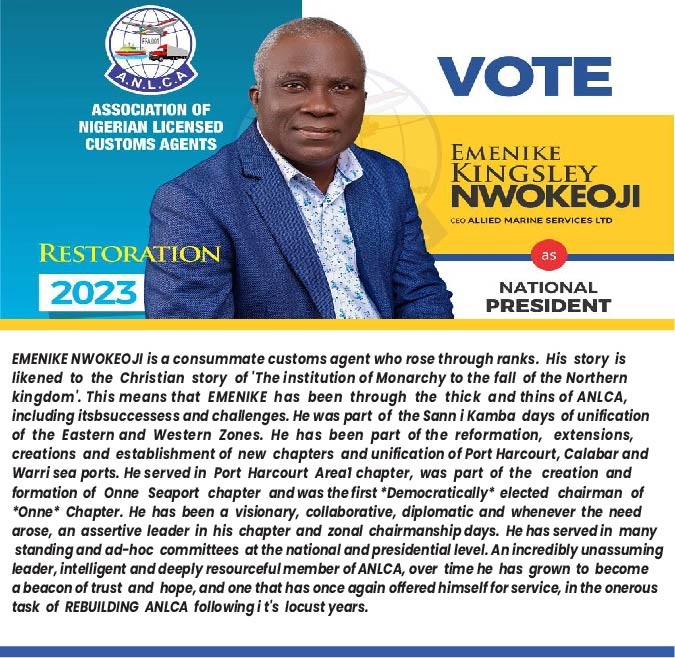Biofouling Control: Sub Regional Africa, Development Partners Holds Training In Lagos
BY EGUONO ODJEGBA
Experts, stakeholders and the crème-de-la-crème from the African sub regional maritime nations gathered in Lagos Monday for a 3-day training programmes on the management and control of biofouling, billed to wind up today, Wednesday November 1, 2023.
The comprehensive Biofouling Management Training programme launched by the Nigeria’s Maritime Administration and Safety Agency (NIMASA) in collaboration the Maritime Technology Cooperation Centre (MTCC) Africa and other development partners is aimed at addressing critical marine biofouling challenges championed by the International Maritime Organization (IMO) regulations.
Experts and industry players at the opening event defined marine biofouling as the undesirable accumulation of aquatic biological species on the surfaces of submerged objects such as ship hulls and pier pylons, and identified some of the microalgae to include barnacles and microbial slimes.

In his address to declare the training open, the Director General of NIMASA, Dr. Bashir Jamoh OFR, said that the training would showcase the applicable latest technologies required to combat the menace towards achieving a safer marine and in reducing impediments to ocean shipping, including any adverse effects posed on the ecosystem and atmosphere.
He said, “The importance of protecting and conserving our seas, oceans and their inhabitants cannot be overemphasized as we are intrinsically linked to them and their wellbeing reflects our wellbeing too.”
“Shipping is at the crux of global trading and the economy with about 90 percent of world trade and commerce is facilitated through shipping. Studies, however, revealed that ships serve as a time channel for the transportation of harmful non-indigenous Invasive Aquatic Species (IAS). These organisms attach themselves to the outer surface and niche areas of a ship and are then translocated from one region to another. The process by which these organisms attach themselves to the ship and other surfaces is referred to as Biofouling.”
He explained that whereas the Nigerian economy rely heavily on international trade which makes shipping a key component in her import and export activities, the NIMASA boss emphasized that however lamented that Nigeria is inevitably exposed to the threats of the IAS transfer into her territorial waters, hence the readiness to train to acquire the required cutting edge knowledge for its management and control.
He emphasized the need for all maritime nations to unite in the control of the IAS transfers stating that “their wellbeing reflects on our wellbeing” and that “a healthy ocean is a healthy future.”
Contributing virtually, the Director, Head, Department of Partnerships and Projects, IMO, Dr. Jose Matheickal noted that the IMO is excited that NIMASA has taken the lead in a strategic partnership with MTCC Africa for the training on TEST Biofouling in Nigeria.
“The event is very meaningful and serves as a platform for information sharing and there is the need for collaboration and coordination from stakeholders”, adding:
“We have been encouraging more women to participate in the sector and we are very excited to find African Women in Maritime (WIMAFRICA) Nigeria and other women groups emerging in the maritime space.”
Also spaeking, the Head of MTCC Africa, Ms Lydia Ngugi said the aim and mandate of the MTCC is to build capacity for climate change mitigation in the shipping and maritime industry in Africa.
“We are here to deliberate and have technical workshop on the test biofouling programme that they are running in conjunction with partnering countries and Nigeria is one of them. We have representatives from Comoros and Somalia.
“With regards to technology, IMO has in place the biofouling guidelines and its aim is to ensure that there is sustainable development world over especially in the shipping industry and this is linked to the United Nations Development Goals.
“With regards to the scope, we all know that a healthy ocean is good for the entire environment as well as the shipping industry,” Ngugi said.
The Project Manager, Norway, IMO TEST Biofouling Project, Department Of Partnerships and Projects, Ms Yeongjoo Baek who participated virtually urged for increased women participation in the project and other related marine human endeavours.
Meanwhile, the Secretary-General, Memorandum of Understanding on Port State Control for West and Central African Region (Abuja MoU), Capt. Sunday Umoren observed that marine biofouling adds to the costs of operating vessels for shipowners; even as he further argued that a byproduct of biofouling also has some positive in that it serves as some sort of edible delicacy in parts of the world.
“Biofouling works against shipowners because it increases the ship drag leading to more funds spent on fueling the vessels. However, aquatic species have the good, the bad, and the ugly. There is a need to maintain a balance in the aquatic environment and the only way to attain this is for respective maritime nations to keep their aquatics,” Umoren said.
NIMASA Deputy Director, Marine Environment Management (MEM), NIMASA, Dr. (Mrs.) Oma Ofodile who superintended over the successful organization of the training in Lagos also mentioned that biofouling and greenhouse emissions are common agents that pose great concern to the IMO.
“Once a vessel is biofuels, there will be more emiaquatics, through this training, we are ensuring that Nigeria isn’t left behind in heeding to IMO call for Net Zero by 2050.
“NIMASA has done a lot to reduce emissions and the training is one of the ways to close the gap of emission from vessels,” she said.
In attendance are gender capacity builders and mentors including the Secretary General of the African Ship-owners Association, Funmi Folorunso, President of African Women in Maritime Nigerian Chapter, Mrs. Rollens Macfoy; and the representative of the Chief of Naval Staff (CNS), Admiral Superintendent Naval Dockyard Limited, Victoria Island, Lagos, Rear Admiral Abolaji Orederu; among others.






